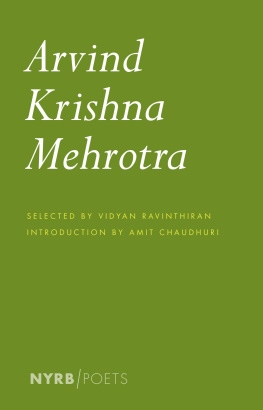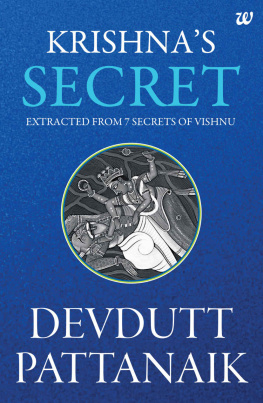Henry M. - The Divine Krishna
Here you can read online Henry M. - The Divine Krishna full text of the book (entire story) in english for free. Download pdf and epub, get meaning, cover and reviews about this ebook. year: 2010, publisher: iUniverse, Inc.;Bertrams Print On Demand, genre: Religion. Description of the work, (preface) as well as reviews are available. Best literature library LitArk.com created for fans of good reading and offers a wide selection of genres:
Romance novel
Science fiction
Adventure
Detective
Science
History
Home and family
Prose
Art
Politics
Computer
Non-fiction
Religion
Business
Children
Humor
Choose a favorite category and find really read worthwhile books. Enjoy immersion in the world of imagination, feel the emotions of the characters or learn something new for yourself, make an fascinating discovery.
The Divine Krishna: summary, description and annotation
We offer to read an annotation, description, summary or preface (depends on what the author of the book "The Divine Krishna" wrote himself). If you haven't found the necessary information about the book — write in the comments, we will try to find it.
The Divine Krishna — read online for free the complete book (whole text) full work
Below is the text of the book, divided by pages. System saving the place of the last page read, allows you to conveniently read the book "The Divine Krishna" online for free, without having to search again every time where you left off. Put a bookmark, and you can go to the page where you finished reading at any time.
Font size:
Interval:
Bookmark:
The Divine Krishna
A Workbook for Interpreting the Teachings in the Bhagavad Gita
Henry M. Piironen
BASED ON A TRANSLATION BY SWAMI SWARUPANANDA (1909)
iUniverse, Inc.
New York Bloomington
Copyright 2010 by Henry M. Piironen
All rights reserved. No part of this book may be used or reproduced by any means, graphic, electronic, or mechanical, including photocopying, recording, taping or by any information storage retrieval system without the written permission of the publisher except in the case of brief quotations embodied in critical articles and reviews.
iUniverse books may be ordered through booksellers or by contacting:
iUniverse
1663 Liberty Drive
Bloomington, IN 47403
www.iuniverse.com
1-800-Authors (1-800-288-4677)
Because of the dynamic nature of the Internet, any Web addresses or links contained in this book may have changed since publication and may no longer be valid. The views expressed in this work are solely those of the author and do not necessarily reflect the views of the publisher, and the publisher hereby disclaims any responsibility for them.
ISBN: 978-1-4502-1291-5 (sc)
ISBN: 978-1-4502-1292-2 (ebook)
Printed in the United States of America
iUniverse rev. date: 02/23/2010
All truly wise thoughts have been thought already thousands of times; but to make them truly ours, we must think them over again honestly, till they take root in our personal experience.
-Johann Wolfgang Von Goethe (1794-1832)
For Nina
There are highly developed areas in the reality of consciousness one must study by herself in order to become self-reliant in them.
- Henry M. Piironen
Contents
Part I
General Guidelines for Writing
The one commonality that unites the non-idolizing major religions is the drive and motivation to rise into heightened awareness through consciousness. The distance generated by the advancing time of the reality in its modern form and the reality that dates the beginning of the major religions causes us to lose a reference point to what state of being they state as savagery and non-pure in nature, and as these wisdom traditions and ethical movements of peace have spread in unitial ethical level, mixed and evolved into unrecognizable forms, it becomes even harder for us to apprehend the savagery human consciousness.
Now, in order for any ethical system or unitial ethics be true, they must be conducted from the fact that everyone who live in this world equally exist, born unknowing of the state the worlds reality is and has advanced to. Through what is called as socialization and adaptation, everything we learn from reality is perfectly natural to us, until we start to question should for example the political power be as it is, even to the extent of should the reality be as it is what we call as the natural order and law of principles.
The ethical systems and books of spiritual empowerment presented in the demystified series have all qualified the status of them being not idolatry, but written for the purpose of individuals own spiritual growth, for the purpose of giving the individual ideas for embettering oneself, and for the individual to rise into higher internal organization. What the teachings present are the foundations of internal well being and foundations that open perceptions to new potentials an individual can expose himself/herself into, forming open mindedness unlike the contemporary rationality often gives an individual believe.
Spiritual empowerment without teachers is idealism, that supports the individuals own efforts and belief on himself/herself to for one thing, being worthy of everything written in the sacred scriptures and that the individual himself/herself is able, through personal contemplations achieve and master everything written in these texts. It is also to avoid the idolizing possibilities wherein the teachers themselves are the only ones to keep the privileges of human consciousness provided by these teachers, keeping their position as such that generates a belief that none other but the teachers are able to achieve fully what the teachings are written to benefit. It is a sad tendency, for the only realistic explanation to such behavior is for the teacher to keep his/her position and access to the wealth provided by the students, thus not allowing those who follow them to the realizations that form the meaningful realities given by the enlightened first teachers thousands of years ago. Thus, in the spirit of this book I will only provide teachings on how to write and interpret, and enforce the belief on the potential capacity we already have to break the boundaries that can only imprison an individual to disbelief. Why? Because it is more beneficial for an individual to not to learn how to live as I live, but to learn how to live as the individual himself/herself chooses to live. After all, we are all born unknowing, equally existing.
I. Making time for yourself
It is essential for any author to disconnect themselves from the threshold of publishing their writings as they are writing. Authors are more concerned from the aesthetics of their sentences and the accuracy the representations that emerge through those sentences than the audience they are writing for, and although the genre and the demographics are important to note, minds of the professional authors are trained to automatically keep such things in their mind. Yet, the stress generated by being aware of the audience and what they might think only drains capacity from creativity and is very harmful for the concentrated focus to write, and thus, as you are writing your interpretations, it is essential that you dont care what other people might think about your writings, and sentence structures. After all, this is for your personal discovery and growth, not for any others, and hence everything you consider as the truth is the truth for you, it serves you, enabling you to spiritually empower yourself.
Making time for yourself is to create an environment that serves your contemplations, and gives you personal space to think creatively everything you encounter. If youre thinking about what happens in the reality around you, you in essence use the capacity you have for thinking for yourself. And theres nothing wrong of placing oneself to be first in your priorities, but if you have small children, make sure that everything is taken care for them before starting your contemplations. After all, childrens needs outweigh the needs of the parent, but by making time for yourself is to create an ideal environment for creativity: You got all your capacity for contemplations for self-discovery. And if you havent trained your mind to listen psytrance while writing as you sit on a sub, or have a concentration of a navy pilot, you must find the ideal environment that best suits your capacity to write and contemplate. The time you invest for interpreting the teachings is the amount of time you are willing to invest for yourself!
II. The authentic compass and writing
An author compasses his/her writings through an authentic experience they receive from the sentence they form. An author may go through a variety of sentence structures before they sensate from the sentence that it expresses exactly what they wanted to express, and receive great joy from such an event. In the context of this book, I have named that as the authentic compass, since it is the authors authentic experience of sentence structure that can either preguide the process of forming the sentence or after a process of trial and error.
When youre reading a teaching, you get the authentic sense of what the teaching speaks of, and it is that authentic sense of what youre about to write down as your interpretation. Having that authentic experience in your mind, by holding on to it, you can preguide your writing process, and just as a professional driver looks further on the road than a beginner, such is the experience on writing the more professional writer becomes. The senso-motor system in us is preguided by our perceptions on where we want to direct our bodies to, and our body does what we think. Hence, when you use your authentic compass for writing, your authentic experience of the teaching guides the process of your writing.
Next pageFont size:
Interval:
Bookmark:
Similar books «The Divine Krishna»
Look at similar books to The Divine Krishna. We have selected literature similar in name and meaning in the hope of providing readers with more options to find new, interesting, not yet read works.
Discussion, reviews of the book The Divine Krishna and just readers' own opinions. Leave your comments, write what you think about the work, its meaning or the main characters. Specify what exactly you liked and what you didn't like, and why you think so.

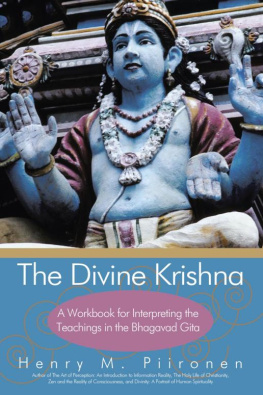
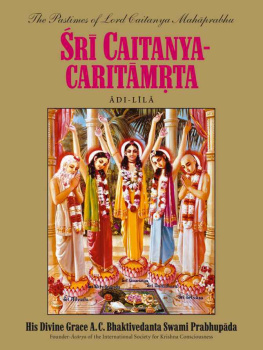

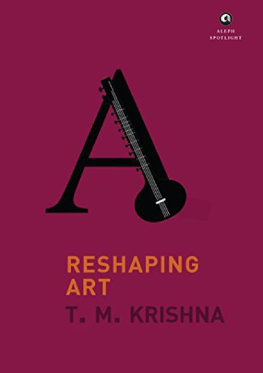
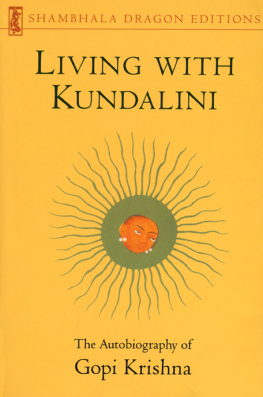
![Krishna Dharma - Mahabharata: [the greatest spiritual epic of all time]](/uploads/posts/book/213378/thumbs/krishna-dharma-mahabharata-the-greatest.jpg)


